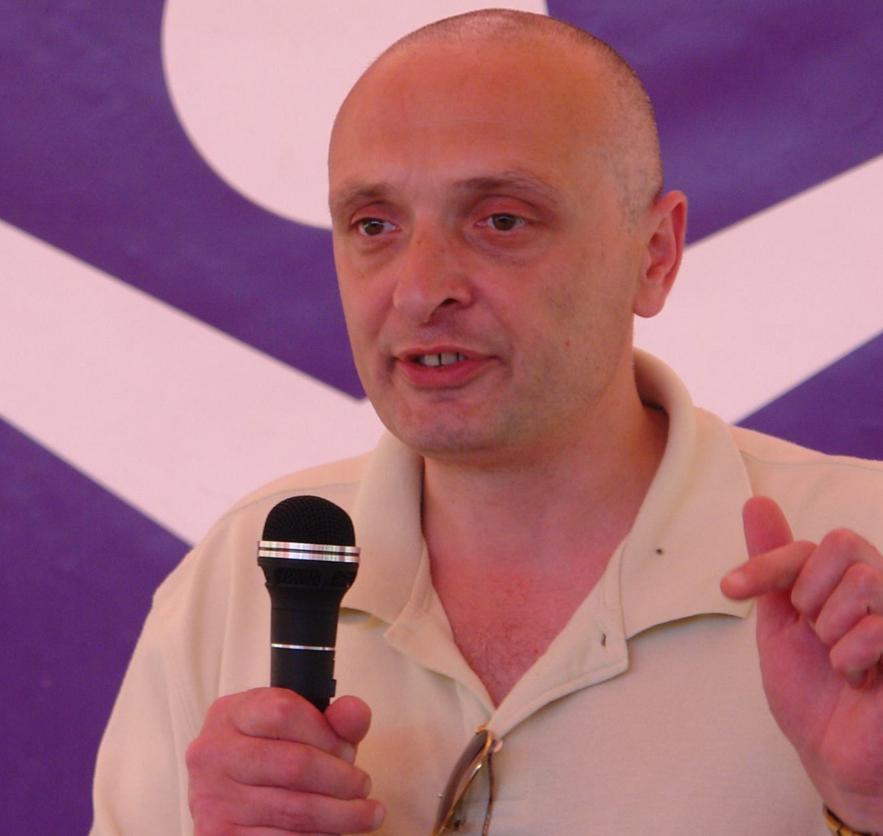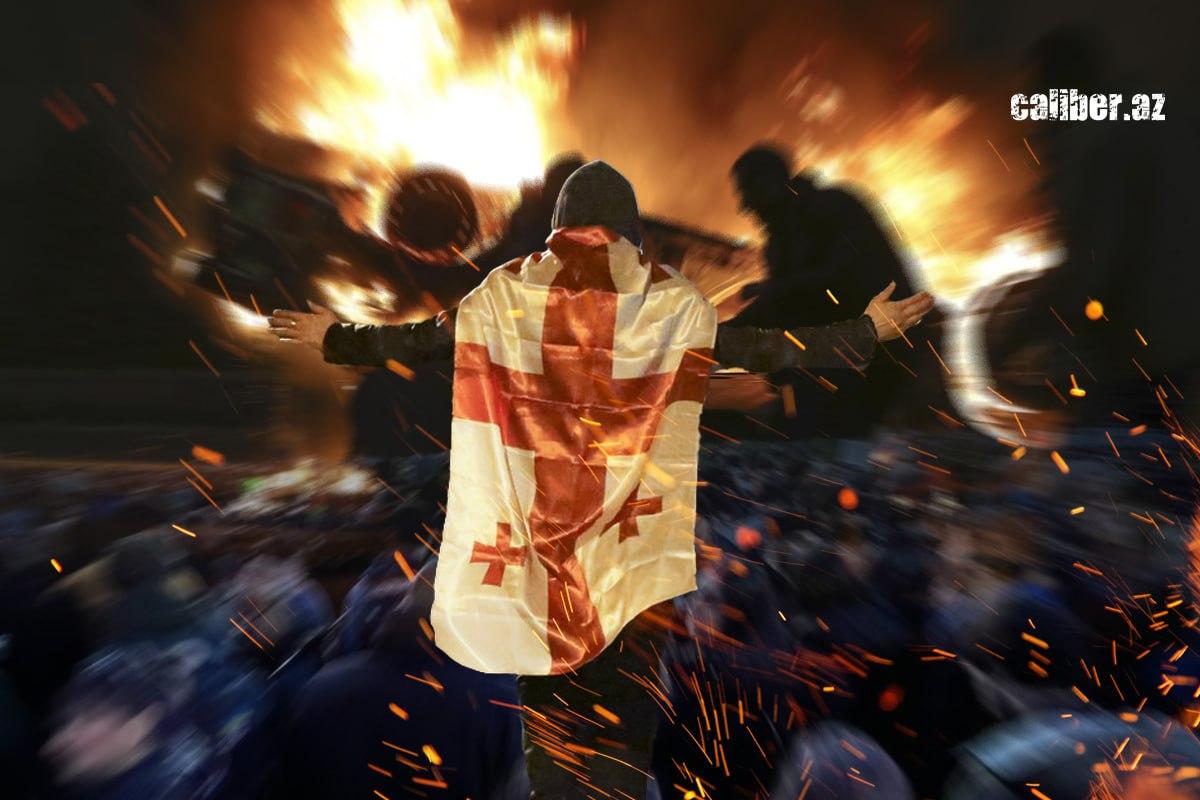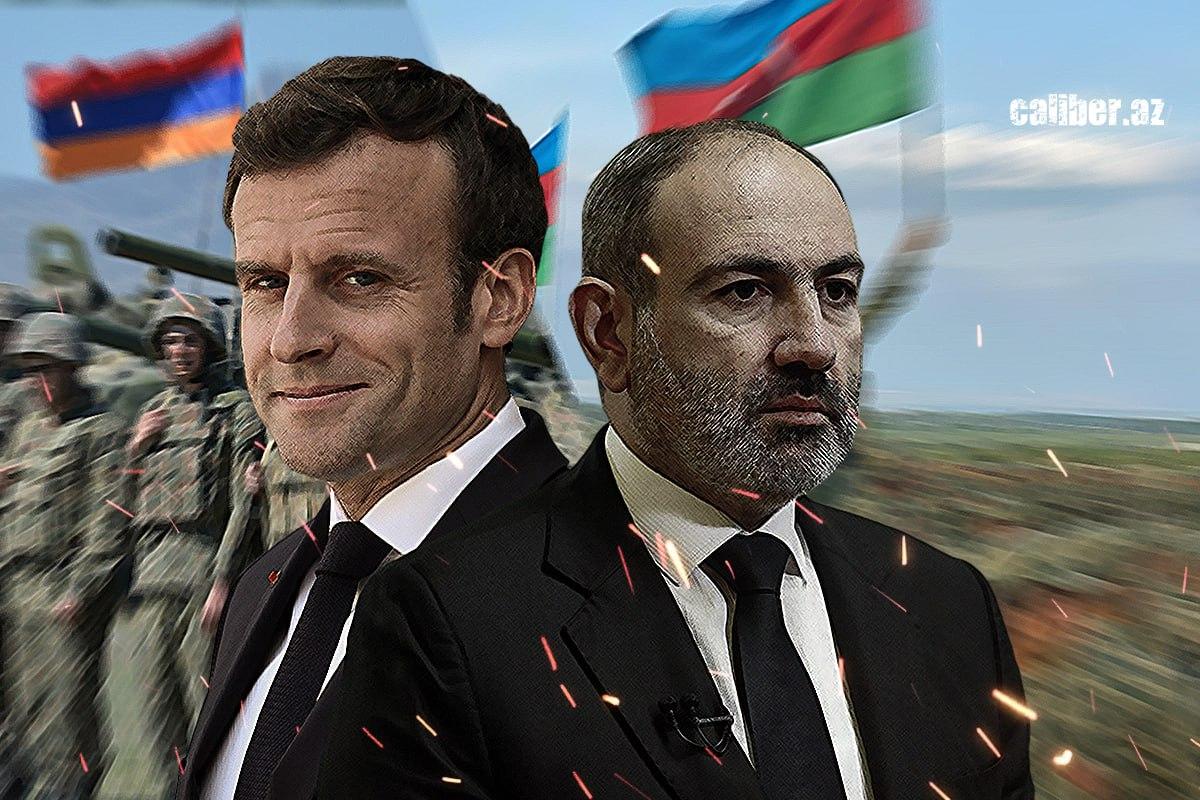Georgian analyst discusses Tbilisi's politics, Armenian-Azerbaijani relations, French role in South Caucasus Giya Kuchava on Caliber.Az
Caliber.Az presents an interview with Georgian analyst and pundit Giya Kuchava.

- How will the situation with the law on foreign agents in Georgia develop further?
- Georgia will hold the parliamentary elections in October 2024. The ruling Georgian Dream (GD) party claims to win the elections for the fourth time and gain a constitutional majority.
Although before the adoption of the law on foreign agents, in my opinion, the ruling party had an almost 100 percent chance of winning the elections for the fourth time, this probability has now decreased.
After last year's protests, the hastily passed law came as a big surprise to Georgian society, as the ruling party had promised not to consider the bill again after it was withdrawn last spring.
The society, especially the youth, felt cheated. Although the protests did not reach the scale of last year. By their actions, both the ruling party and the radical opposition did a lot of good and brought the country to a dead end. Although the main responsibility still lies with the ruling party. Some experts and politicians wonder whether Georgia will be able to make it to the elections.
I think unofficially yet, but the West has imposed certain sanctions against Georgia, which is fraught with suspension of economic, political and other cooperation. I am not talking about a complete freeze, but a suspension. And this, for its part, will have negative consequences for the economy and social stability. Western countries are already putting undiplomatic pressure on the ‘GD’ government, and the march of high-ranking politicians to the protests, which the pro-government media presented as interference in internal affairs and encouragement of the opposition to a coup d'état, was a vivid example of this.
The radical opposition, I mean Saakashvili's United National Movement party and its so-called ‘splinters’ - Agmashenebeli Strategy, Girchi, etc. realize that they will never be able to return to power in fair elections. That is why I do not rule out that there will be protests until October, i.e. until the elections. The ruling party claims to have the support of 80 percent of voters. But this is not true, as a very large number of people came out to the protests. But it should be emphasized that the Georgian electorate is grateful to the ruling party for not going to war against Russia, as the radical opposition and official Kyiv demanded. This is what ‘GD’ is playing on now.
Another important point - the Kremlin propagandist Karnaukhov called on the Russian authorities to introduce troops in case of aggravation of the situation in Georgia. Let me remind you that 40 km off Tbilisi, in the occupied Tskhinvali region, there are Russian troops. It would be enough for them to block the Tbilisi-Gori motorway.
Under such circumstances, I can assume that with the right strategy, small political parties can take advantage of it and get their representatives into the parliament. That is why ‘GD’ is trying to pressure small political parties and prevent them by various administrative methods. They do not have access to large media and, first of all, television. In the regions, the older and middle generation, unlike the younger generation, gets their information from television. Sometimes there is an impression that apart from the ruling party and the radical opposition there are no other political associations in Georgia, no other vision of achieving consensus in society.

I can safely say that both the ruling party and the radical opposition are fueling each other, because with the departure of Saakashvili's party and its so-called splinters from the political orbit, the Georgian Dream will not have long to rule. Therefore, both political camps need each other.
- How do you assess the results of the negotiation process between Baku and Yerevan?
- I only welcome that the leaders of Azerbaijan and Armenia were able to find common ground. Of course, the external forces are dissatisfied with this and will try to destabilize the political situation in Armenia and, as in Georgia, to split the society.
I would like to remind you that back in 1997, Levon Ter-Petrosyan was ready to recognize Karabakh as a legitimate territory of Azerbaijan, and the Azerbaijani authorities promised wide cultural autonomy to the people of Armenian nationality. But immediately after that, Russia was able to provoke unrest, as a result of which in February 1998, Ter-Petrosian resigned and the Karabakh clan came to power in Yerevan.
In the autumn of the following year, Speaker of the Armenian parliament Karen Demirchyan, who had been the first secretary of the Central Committee of the Communist Party of Armenia for 14 years, was assassinated. He had every chance of winning the next presidential election. At that time, Demirchyan understood more than anyone else the trap into which Armenia had fallen because of the war in Karabakh. Let me remind you that by the time, the armed conflict started in 1988, he was the first secretary of the Central Committee of the Communist Party of Armenia.
Of course, there are those in Armenia who are dissatisfied with the current government, they find it hard to get used to the idea that the country lost the Second Karabakh War. The Karabakh clan, supported by Moscow, is calling for revenge and a new war. Moscow also has ‘its people’ in Echmiadzin. Today all means are good for Moscow, just to destabilize the situation in Armenia and overthrow Pashinyan. At the same time, in my opinion, Baku and Yerevan are doomed to sign a peace treaty.
- What is the EU's interest in the South Caucasus? And how do you assess France's policy in our region?
- The interest of the EU countries in our region increased immediately after the collapse of the USSR. First of all, it was connected with Baku oil and ways of its delivery to the world markets. And then, the Caucasus region is an integral part of the Greater Middle East and a key to the Central Asian region.
During and after the Second Karabakh War, it was France that openly took a pro-Armenian stance. I think this is due to the activity of the Armenian lobby in France, which has strong positions and influences the outcome of the elections. I do not exclude that this is what guided them in Paris. I am not a military expert and I cannot judge what weapons were given to Yerevan. Armenia will not be able to fight against Azerbaijan for a number of reasons. I hope Armenia realizes that a new war with Azerbaijan is tantamount to suicide.

As for Paris's accusations about Azerbaijan's involvement in the unrest in New Caledonia, I do not take it seriously. Azerbaijan has plenty of its own affairs. First of all, it is the reconstruction of Karabakh, which is not cheap.
I cannot judge what Macron's prospects are and when he will leave politics. For that, one should know in detail the internal kitchen of France and the mood of French society. But at this stage, France cannot influence the politics of Azerbaijan or Georgia. France is not as strong as, say, Germany. Today, almost all EU resources are concentrated on helping Ukraine. EU countries have no opportunity to disperse. All the more so while the hostilities between Israel and Palestinian terrorists are not over.
At the outset of the XXI century, a book by American diplomat James Goodby was published, “Europe Undivided: The New Logic of Peace in U.S.-Russian Relations”.
Referring to the conflicts in the post-Soviet space, the author notes that in the 1990s, the priority for Western countries was the military conflict in the Balkans, in the former Yugoslavia. The region, according to Churchill's definition, is the “soft underbelly of Europe”.
Back then, the US and its allies had no opportunity to disperse their forces. Neither does it now. Not since the Second World War has there been such a bloody war in Europe and such large-scale destruction and deaths, including of civilians.








